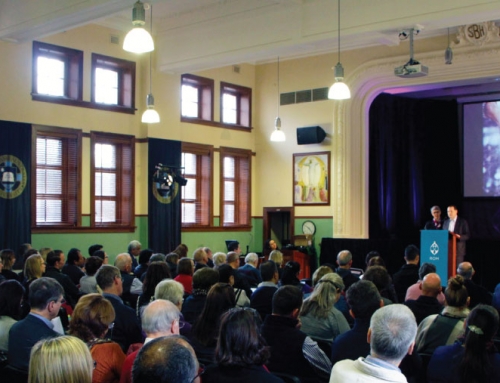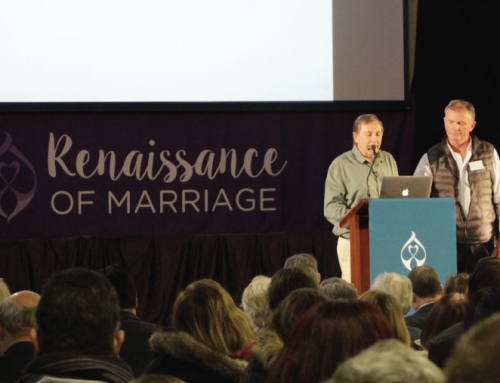Dr Byron & Francine Pirola
An interesting article on destination weddings and the impact of not being married in a church or with a priest.
A recent article on US Catholic asked the question: Should Catholics have Destination Weddings? : here. The article touched on such issues as:
- The imposition on guests to take time off work and outlay considerable money to take a holiday in a destination not of their choosing.
- The attraction of destination weddings to the couple being the romantic backdrop and the desire to stand out from the crowd.
- While the danger of over indulging the consumerist inclination is real, many couples choose a destination wedding to SAVE money… how? In two ways; many destination weddings are held in resorts in developing countries where wages are cheaper, and many of their invited guests will be unable to attend, thus they can prune the guest list without having to disinvite anyone.
But perhaps the most troubling aspect of this trend is that destination weddings rarely include a church or a priest. In fact, many couples will have a friend officiate at their wedding, it being a simple matter to qualify through an online application (in the USA).
It’s easy to be dismissive and judgemental about these choices, but it behoves us to understand the drivers that are leading Catholics to choose a Bali beach over their parish church for their wedding ceremony. Here are some of our thoughts…
- Firstly, most Catholics, married or otherwise, would struggle to articulate exactly how a Catholic marriage differs from a secular one. While their parent’s generation are aware that the Church calls us to reject contraception, premarital sex and divorce, many of us don’t really buy into this and yet we’d still call ourselves ‘Catholic’. Can we really blame our young engaged couples for choosing an alternative to a church wedding when the vast majority of Catholic couples live their marriages with little to distinguish them from the general population? The real challenge is not just attracting our young engaged couples to a Catholic wedding, but to a Catholic marriage. Our communities need to find ways to effectively embrace all our couples into living the fullness of the Catholic vision for marriage.
- Most young Catholics don’t have an active connection with their parish – they may have a nostalgic attachment, but many simply don’t practice regularly therefore are unlikely to count among their guests any parishioners other than their family members and the celebrant. Some engaged couples can be rather self-entitled and demanding when it comes to their wedding plans, so understandably many parishes can feel justified in making it difficult for non-parishioners to marry in the church; requiring them for example to find their own priest and/or paying a fee. The challenge for the Church is to embrace what is really a teachable moment. For a couple who have chosen a church wedding, even if there is no recent connection with the Church, there is at least a flicker of something that we as a caring community can cultivate. Instead of seeing these occasions as an inconvenience perhaps it would be more fruitful to see them as evangelising opportunities? Couples who have a positive experience of Church through their wedding are more likely to reengage with the Catholic community down the track than those who have a negative one.
- As more couples delay marriage, often cohabitating for several years beforehand, the wedding itself becomes more intense. Why? If a couple has already set up home, there is little to actually mark the beginning of their married life except by an over-the-top wedding. Even the honeymoon is somewhat unnecessary – after all, they hardly need some alone time to savour the new sexual expression of their relationship. In order to engage friends and family in their excitement, couples therefore are driven to increasingly extravagant gestures in a bid to distinguish their event from the life they’ve been living. As the costs mount, the wedding is sometimes delayed to allow time to save for and organise this complex event. One of the most effective strategies we as a community of faith can employ is to challenge the wisdom of this delayed marriage-cohabitation pattern. After all the research is clear – neither cohabitation nor delaying marriage beyond the early twenties provides any advantage in terms of divorce resistance – in fact, cohabitation in almost all circumstances makes divorce more likely. If we care about our next generation we need to be getting this message out to our young people and to their parents.
- Too often, we approach marriage preparation as a ‘divorce-proofing’ activity. While this is necessary and most engaged couples find their courses very helpful, we are missing the point if this is all we offer. When a couple comes to us to be married in the Church it is an evangelising opportunity. They are already in love, we need to help them recognise the source of their love – Love Himself. This is more than just giving them input on the theology of the Sacrament of Matrimony (though again, necessary and helpful). It involves being in relationship with couple, preferably through a mentor couple of faith who can reflect the truth of their love back to the couple; who are willing to invite the couple into the intimacy of their own couple spirituality and guide the young couple in developing their faith. Not surprisingly, perhaps we increasingly see couple-to-couple mentoring is gaining popularity in many Catholic parishes and dioceses as the ‘gold standard’ in marriage preparation methodology.
Whether we like it or not, the landscape of Catholic weddings is shifting. Rather than bemoan what we have lost, it is a clarion call to action: to seek new and innovative ways to harness the positives in the changes in order to continue the work of building the kingdom of God.
Francine & Byron Pirola are the coauthors of the SmartLoving series of marriage formation resources. The SmartLoving Engaged course is a multi-media mentoring course suitable for parishes and dioceses. Info: www.smartloving.org/engaged/





